At the age of 95, musician Pham Tuyen was recently honored with the Cricket Knight Award, the grand prize of the 2025 Cricket Children's Award for his great contributions to children.
Musician Pham Tuyen (second from right) received the Cricket Knight Award - Photo: Organizing Committee.
The person who builds fairy gardens with children's music
Many Vietnamese people grew up with The Star Lantern, She and Me, Marching for Reunion, or The Little Elephant in Ban Don, melodies filled with joy and dreams. Musician Pham Tuyen was the one who lit up that fairy tale garden with music, sowing into the souls of young children the first lessons of love, solidarity and dreams.
Musician Pham Tuyen, who created a fairy garden for children using music. Photo: VTV.
Since the early 1950s, when he was assigned to work in the arts at the Military Academy and then the Central Campus in Nanning (China), Pham Tuyen began writing music for children. The first songs such as Em yeu truong em, Tap tam vong, Tia nang hong ... were born in a deprived but emotional situation.
His songs must be written from a close perspective, listening to children talk, play and live, like a friend of children.
One day, when he visited his daughter’s kindergarten class, he saw a little girl clinging to her mother, crying, refusing to let go of her mother’s hand. That feeling moved him all the way home, and that night, the song “ Miss and Mother” was born. The song is short, simple, and so profound that many kindergarten teachers consider it the “first lullaby” to bring children into the world of school.
The melodies of "Childhood Swallows" give wings to dreams to fly high, "My School is a Kindergarten" is affectionate and loving, or "Little Elephant in Ban Don" is mischievous and adorable, "Forward, Reunion" is heroic and full of enthusiasm... have overcome the test of time, becoming songs that many boys and girls know by heart.
His music teaches children about kindness, love for family, teachers, friends, and pride in their homeland and country. Every lyric, every note is imbued with an understanding of children's psychology, a deep empathy that not every musician has.
With more than 200 children's songs, many of which are printed in textbooks and passed down from generation to generation, musician Pham Tuyen is considered one of the important founders of the development of modern Vietnamese children's music, especially after 1975.
In addition to composing, musician Pham Tuyen also made great contributions in introducing many famous international children's songs to young Vietnamese audiences through skillful and emotional Vietnamese translations. "At school, she taught me that" and "Nu Cuoi" (former Soviet Union) have become familiar songs, bringing meaningful messages. In particular, when the robot cat character Doraemon was introduced from Japan to Vietnam, he was the one who translated the funny songs about Doraemon and his friends, contributing to enriching the spiritual life of children.
It can be said that musician Pham Tuyen opened the door to the fairy garden for children with his gentle, kind and hopeful sounds.
Writing for children must be as serious as writing for adults.
Throughout his creative process, musician Pham Tuyen has always maintained a consistent viewpoint: Composing for children must be as serious as writing for adults, music for children must have the same quality as for adults, and even require more responsibility. Because “children are the future, the green shoots that must be watered with beauty and kindness”.
Musician Pham Tuyen is loved and respected by children. (Photo: Xuan Ngoc).
For him, the core of a children's song is not only a cheerful rhythm and easy-to-remember lyrics, but must also contain a humane message, sowing in children's souls good seeds of family affection, friendship, and love for homeland and country.
“Children’s music should not teach morality in a dry way. Tell them simple but touching stories so they can feel and absorb them themselves,” he shared.
His works often originate from very ordinary observations. For example, She and Her Mother was born after he picked up his daughter from kindergarten and saw a shy little girl who refused to leave her mother. These seemingly trivial situations, but through the artist's delicate perspective, become emotional material.
He also avoids overly dramatic, artificial lyrics. “Children are smart. They don’t listen to clichés. If a song isn’t genuine, they’ll forget it,” he said.
That is why Pham Tuyen's children's music is not only loved by children, but also lives forever - like the first lessons in life through sound, gentle and sincere.
Preserve the "treasure" of nursery rhymes for children
Not only composing new music, musician Pham Tuyen also devoted much effort to preserving and reviving traditional cultural values. He and his wife, Associate Professor Dr. Nguyen Anh Tuyet, painstakingly collected ancient folk songs, then with their musical talent, set them to music, breathing new life into them so that modern children can still hum and play with the heritage of their ancestors.
The "treasure" of 41 nursery rhymes that he composed for music has been systematically introduced through the book project "Nursery Rhymes of Children", whose narrator is his daughter, journalist Pham Hong Tuyen.
The first book "Back to the Countryside - Children's Nursery Rhymes" in the 5-book series has been published, bringing a unique multimedia approach, combining storytelling, music, illustrations and QR codes to listen to music and stories. This creates an interesting interactive experience, helping children not only listen and sing but also understand more deeply the context and meaning of each nursery rhyme.
Among the 41 songs, there are familiar ones such as "The Handmaid's Tale", "The Carrying ...
Musician Pham Tuyen was born on January 12, 1930, the ninth son of scholar Pham Quynh, editor of the famous Nam Phong newspaper. Although his hometown was in Hai Duong , he was born and raised in Hanoi, then followed his family to Hue, living on the banks of the poetic An Cuu River. It was his family environment and childhood experiences that soon nurtured in him a love for culture and music. He began to learn music through classical music, and when he was in high school, he was exposed to Western music theory, learned guitar and accordion - important foundations for his later composing career.
According to him, the happiness of a musician is sometimes very simple. That is when on the street, a mother or grandmother recognizes him and emotionally shares that all three generations in their family grew up with his children's songs. That is the most vivid proof of the enduring vitality of timeless melodies.
Source: https://khoahocdoisong.vn/pham-tuyen-nguoi-det-nhac-tuoi-tho-bang-ca-tu-ngot-ngao-post1545018.html


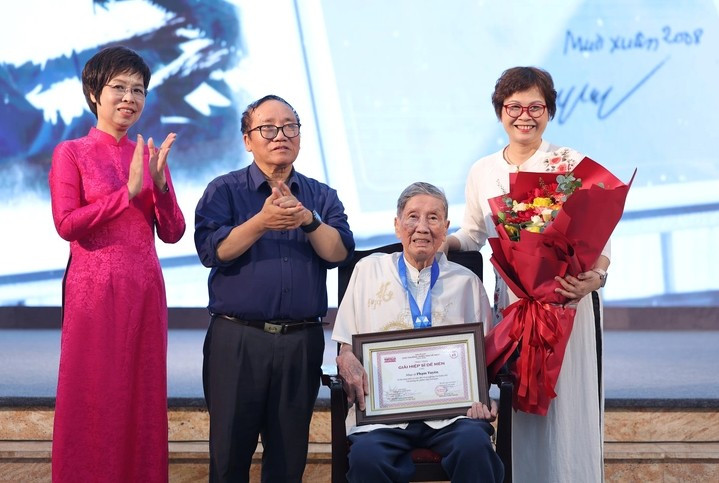
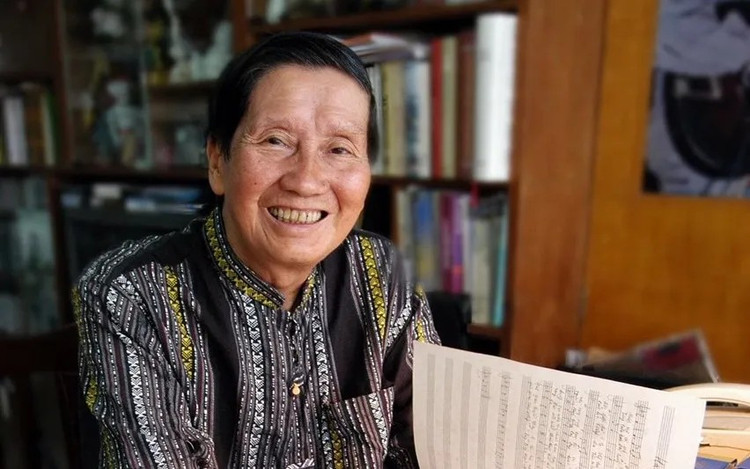
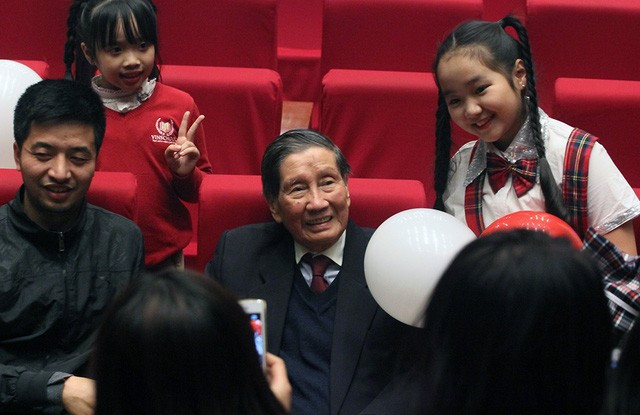

![[Photo] Lam Dong: Images of damage after a suspected lake burst in Tuy Phong](https://vphoto.vietnam.vn/thumb/1200x675/vietnam/resource/IMAGE/2025/11/02/1762078736805_8e7f5424f473782d2162-5118-jpg.webp)

![[Photo] President Luong Cuong receives US Secretary of War Pete Hegseth](https://vphoto.vietnam.vn/thumb/1200x675/vietnam/resource/IMAGE/2025/11/02/1762089839868_ndo_br_1-jpg.webp)








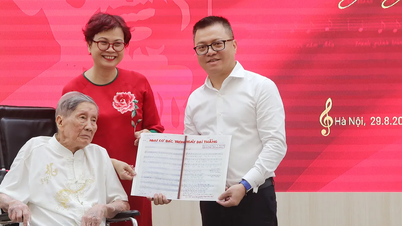


































































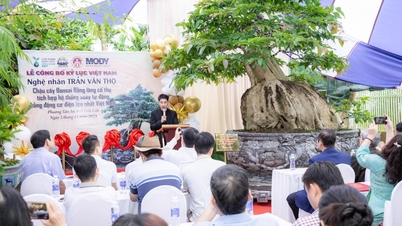



















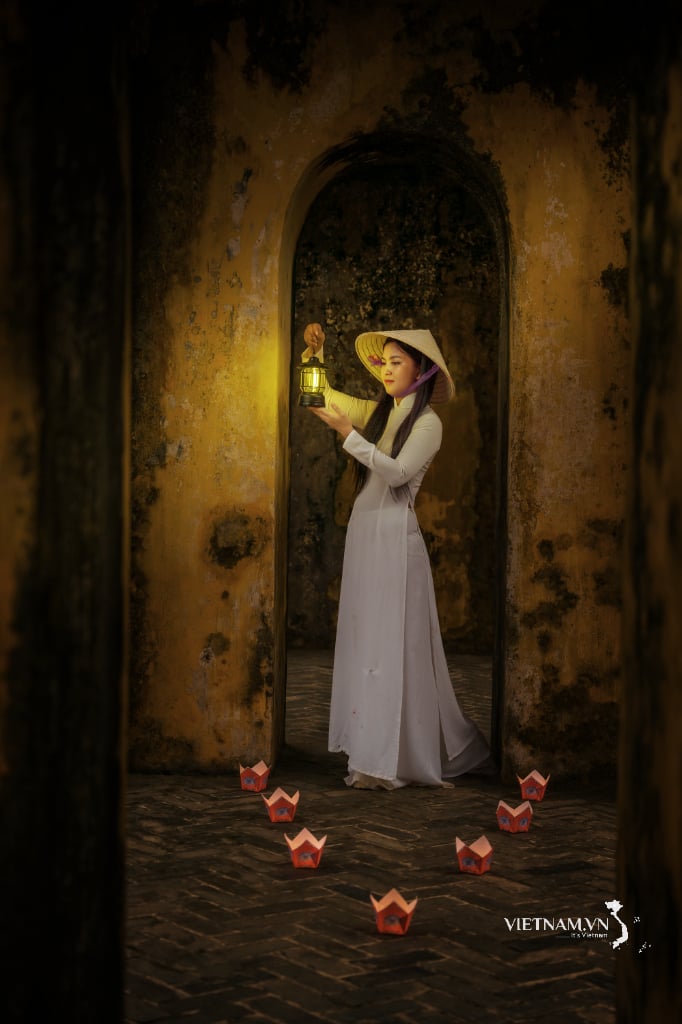

Comment (0)